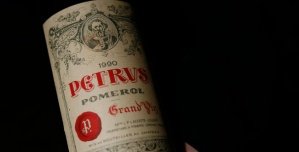Château Petrus loses right to exclusive use of name

Château Petrus, the wine favoured by oligarchs and City high rollers has failed in its legal battle to retain exclusive rights to its name, after a court in Bordeaux ruled that the makers of a cheap blended wine can also continue to use the name.
The Bordeaux appeals court has quashed a petition by Château Petrus which produces theoriginal Petrus, to force the producers of the Petrus Lambertini, which costs less than £10 a bottle, to drop the word “Petrus” from their brand name on the grounds that it was misleading.
Petrus is known as the “Rolls Royce” of Clarets and is produced in Pomerol, the smallest of Bordeaux’s growing regions. A magnum of its 2015 vintage costs over £5,000 and the average price of a bottle of Petrus is over £1,800. Unlike many other "grands vins" of Bordeaux, which also produce cheaper "second wines", Petrus makes only one high-quality vintage.
In marked contrast, Petrus Lambertini is a table wine made by CGM Vins from grapes grown in a number of different vineyards newar Bordeaux. The row began seven years ago when Petrus Lambertini first came to maket. Its labels displayed "Petrus Lambertini" in large type, with "Nº 2" underneath. Château Petrus argued that was misleading because consumers would think it was Petrus's "second wine", meaning a batch not quite good enough to be selected for the premium vintage. Château Petrus accused CGM of "unfair and misleading commercial practices".
Initially a court ruled in favour of Château Petrus, and CGM was fined and ordered to stop sales under the brand name. However, the firm appealed and another court has now conceded that the two labels are “radically different.”
CGM's director Stéphane Coureau welcomed the decision, saying Petrus Lambertini would soon be back on the shelves. "With 47 differences between the labels of Petrus and Petrus Lambertini, that is enough to avoid any confusion," said Coureau. "There are an enormous number of similar names used in the wine industry today, but the real problem is differentiation, to ensure that no producers' rights are infringed."
However, Elisabeth Jaubert, a spokeswoman for Château Petrus, said the company intended to launch a counter-appeal to a higher court. "The Court of Cassation will now assess the legality of the decision by the appeals court," she told the Sunday Telegraph.
